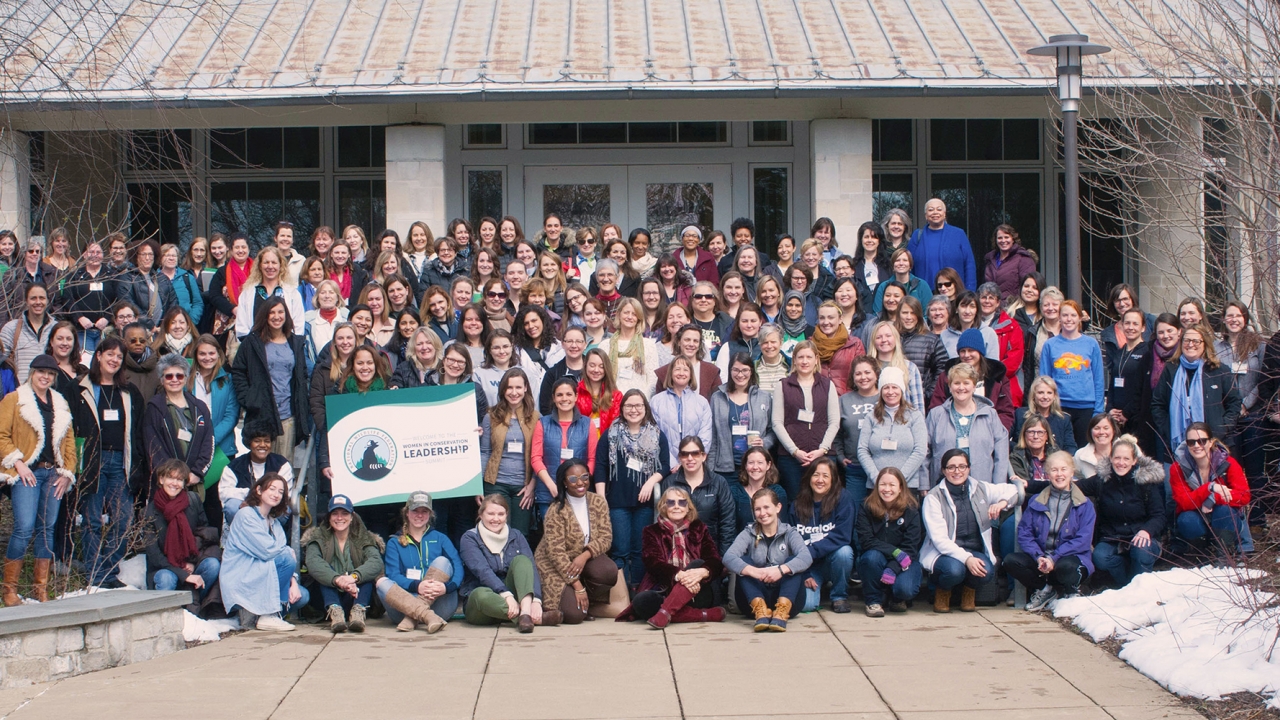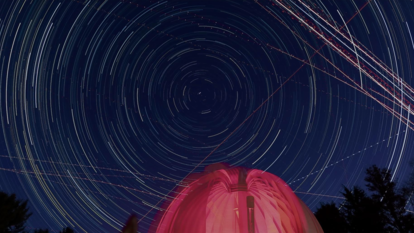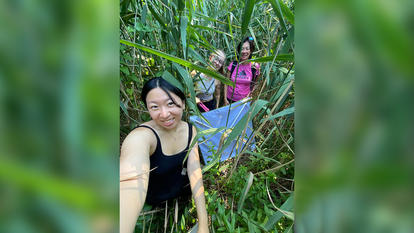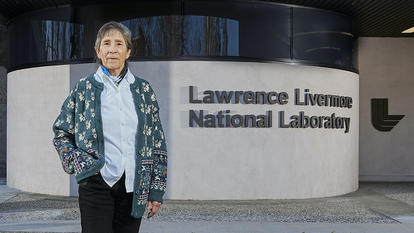Elizabeth Lillard ’11 Spearheads Inaugural Women in Conservation Leadership Summit

When Elizabeth Lillard ’11, an agriculture program specialist at the National Wildlife Federation in Ann Arbor, Mich., attended the organization’s annual meeting last June, she was disheartened that despite the large percentage of women employees—more than 50 percent—very few women were in high-level positions. “Unfortunately, that’s not unique to my organization or to the environmental sector,” she said.
Presidents and CEOs of conservation and environmental organizations with annual budgets over $1 million are overwhelmingly male (about 90 percent), and men occupy the majority of leadership positions within governmental environmental agencies, grant-making institutions, and nonprofit boards in the environmental and conservation sector, according to a 2014 report from Green 2.0, an initiative dedicated to increasing racial diversity in that field.
After Lillard returned from the meeting, she said, she kept thinking, “If only more of my colleagues had gone to Wellesley.” So she decided to find a way to give them a taste of the Wellesley experience.
A few days later, she approached two senior-level women at NWF and proposed a weekend-long seminar that would teach leadership skills. Both liked the idea but were skeptical that it could actually happen, said Lillard, given the logistics and cost.
Lillard wasn’t deterred. She made phone calls and set up meetings with various managers at NWF. She also formed a planning committee that included an associate vice president in the D.C. office; a senior regional representative in Texas; and an assistant campaign director, state engagement coordinator, and Lillard in Ann Arbor. In August 2016, the committee began organizing the summit, including fundraising.
As the weeks passed, enthusiasm for the summit grew within NWF, and several board members, regional offices, and the organization’s CEO, Collin O’Mara, donated to the cause. “We raised enough money to cover all expenses, including travel, for anyone who wanted to attend the summit,” said Lillard.
Lillard helped welcome 160 NWF women, from interns to long-standing board members, to the inaugural Women in Conservation Leadership Summit, which was held March 17-19 at the National Conservation Training Center in Shepherdstown, W.Va. “No one was turned away,” she said. “We had a wonderful mix of cultures, geographies, and viewpoints in the room, which really added to the richness of the weekend.”
Among the topics covered in various facilitated discussions were strengthening and building on women’s leadership, exploring diversity and intersectionality, and understanding women’s personal and organizational realities.
Attendees talked about how best to support women leaders within NWF and next steps for individuals and the organization to take, which ranged from “be vocal for other women” and “own your expertise” to “institutionalize a mentorship/coaching program” and “hold another women’s summit.”
The atmosphere was energetic and empowering. “I would call it focused power. Everyone was ready to get to work,” Lillard said. “During meals I would look around and feel like I was in Tower Court again! We even had an all-female video crew.”
At the end of the summit, many attendees raved about the experience in their evaluation forms or in emails: “I am so grateful to the outstanding organizers/leaders who brought us together,” “I hope you know that this weekend has already changed me and NWF,” and “What an honor to be in this amazing group of conservationists.”
![]() As Lillard looks forward to planning the next summit, she said she is deeply grateful for the professional and life lessons she learned at Wellesley. “I didn’t realize it at the time, but at Wellesley I learned to have confidence in myself, take an idea and run with it, and trust the value of my own thoughts and ideas,” she said. “Wellesley provided a safe space for me to develop self-reliance and courage. There is something powerful about spending so much time surrounded by intelligent, driven women.”
As Lillard looks forward to planning the next summit, she said she is deeply grateful for the professional and life lessons she learned at Wellesley. “I didn’t realize it at the time, but at Wellesley I learned to have confidence in myself, take an idea and run with it, and trust the value of my own thoughts and ideas,” she said. “Wellesley provided a safe space for me to develop self-reliance and courage. There is something powerful about spending so much time surrounded by intelligent, driven women.”



